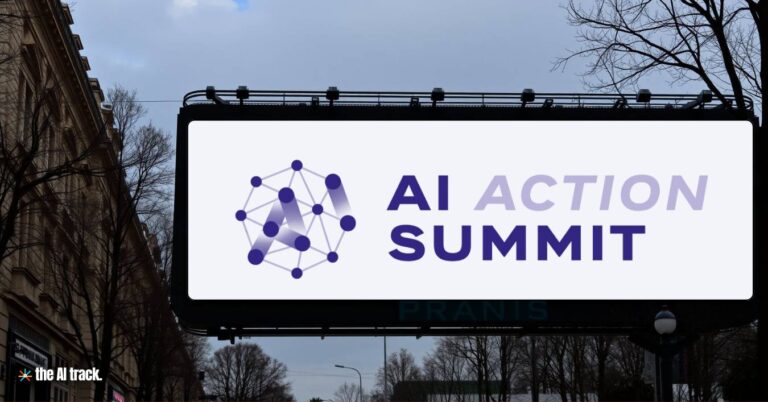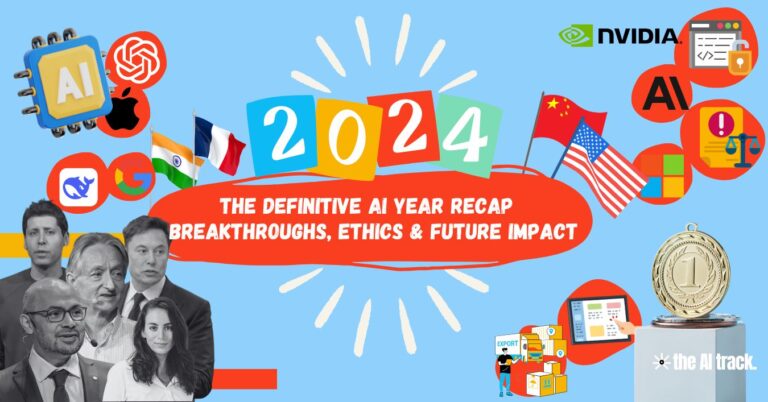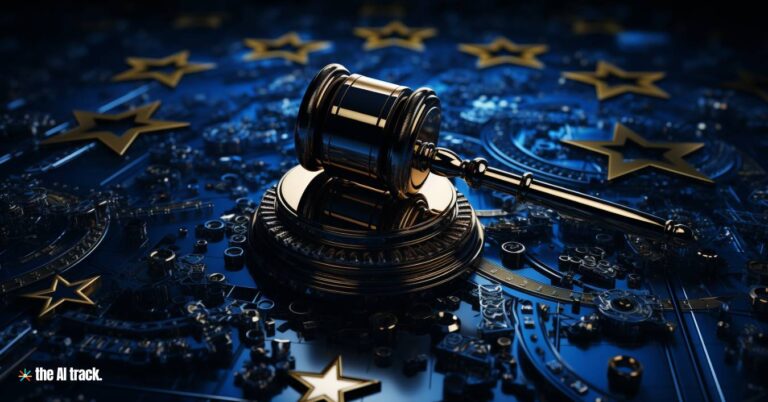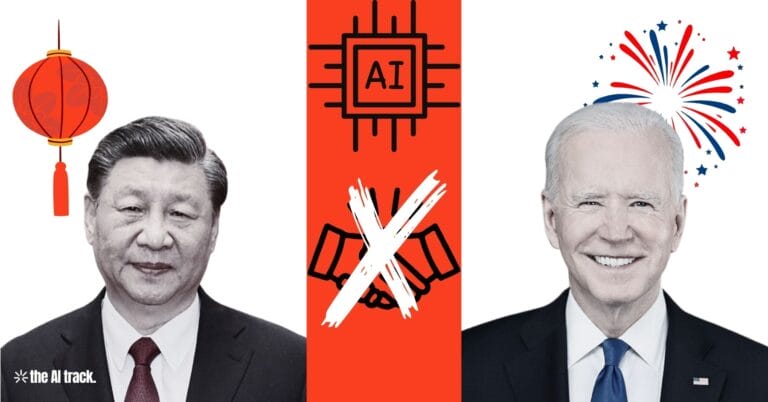At the Paris AI Action Summit on 11 February 2025, the United States and the United Kingdom refrained from signing the Paris AI declaration intended to establish an “open, inclusive, transparent, ethical, safe, secure and trustworthy” AI framework. Their decisions—driven by concerns over ambiguous global governance, national security risks, and potential overregulation that could stifle innovation—contrast with the more than 60 nations, including France, China, India, Japan, Australia, and Canada, that endorsed the document.
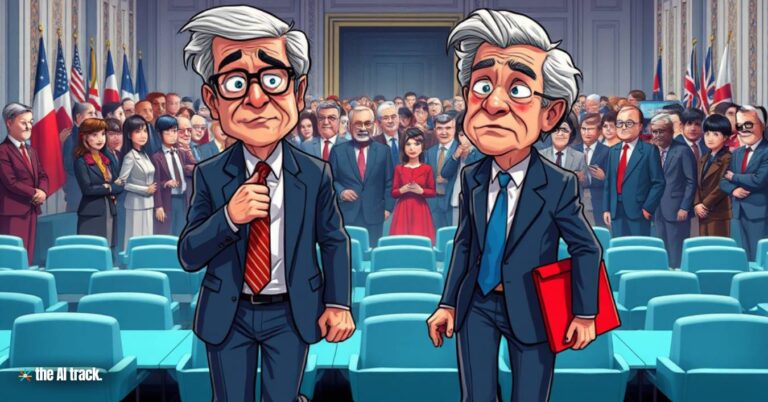
US and UK Reject Paris AI Declaration – Key Points
Summit Overview:
Held over two days at the Grand Palais in Paris, the summit attracted roughly 1,500 participants from about 100 countries. Leaders from over 60 nations gathered to chart AI’s future, addressing not only technological and ethical issues but also concerns over digital divides and environmental impacts.
Declaration’s Objectives:
The Paris AI declaration sets guardrails for AI development to ensure systems remain open, inclusive, transparent, ethical, safe, secure, and trustworthy. It promotes sustainability, human rights, gender equality, linguistic diversity, consumer rights, and intellectual property protection, while highlighting concerns over rising energy consumption and digital disparities. The document outlined six key priorities:
- Enhancing AI accessibility to reduce digital divides
- Upholding robust ethical and safety standards aligned with international frameworks
- Fostering an innovation-friendly environment that avoids market concentration
- Encouraging AI deployment to positively shape work and labor markets
- Ensuring sustainability for people and the planet
- Reinforcing international cooperation for cohesive governance
US and UK’s Position:
Both nations declined to sign the Paris AI declaration. The UK cited insufficient clarity on global governance and unresolved national security issues, while some analyses note political considerations amid escalating US-Europe trade tensions, including actions by President Trump. US Vice President JD Vance criticized European regulatory methods—warning that overregulation could “kill a transformative industry” and comparing AI’s potential to the revolutionary impact of the steam engine. He also cautioned against partnering with authoritarian regimes that might leverage AI to tighten domestic control.
US Vice President’s Remarks:
In his first international policy address as vice-president, Vance stressed that overly strict AI regulations could stifle innovation and halt progress. He condemned heavy compliance costs and potential authoritarian censorship in European frameworks, reinforcing a pro-growth strategy aimed at safeguarding national information infrastructures without overreliance on subsidized technology.
Criticism from Advocacy Groups:
Organizations such as Full Fact (with Andrew Dudfield voicing concerns) and the Ada Lovelace Institute warned that the UK’s decision not to sign the Paris AI declaration, risks eroding its reputation for safe, ethical AI. Critics argue that distancing itself from a unified international framework could compromise its leadership in AI ethics, especially after the prominence of the 2023 AI Safety Summit.
Industry Perspective:
UKAI, representing the nation’s AI sector, welcomed the government’s stance as a precursor to more pragmatic, flexible solutions. The trade body stressed the need to balance industry growth with environmental responsibility and maintain strong ties with US partners.
Meanwhile, the US tech community expressed alarm over the unveiling of a sophisticated, cost-effective large language model by Chinese start-up DeepSeek—developed at a fraction of the cost of competitors like ChatGPT—which has led several countries to restrict its use on government devices.
Global Warnings and Geopolitical Context:
UN Secretary-General Antonio Guterres warned that concentrating AI expertise in a few countries could deepen geopolitical divides, leaving many developing nations behind. French President Emmanuel Macron advocated for global rules that pair robust oversight with rapid innovation. European Commission President Ursula von der Leyen further called for an innovation-friendly, collaborative approach. Meanwhile, escalating US-Europe trade tensions complicate international alliances and regulatory harmonization.
- China’s AI Ambitions: Despite its traditionally combative stance on human rights, China’s endorsement of the declaration surprised many. Chinese Vice-Premier Zhang Guoqing affirmed Beijing’s commitment to international security cooperation, even as the US warned against aligning with regimes that might exploit AI for tighter internal control.
- European Investment in AI: Europe is bolstering its competitiveness alongside safety. The European Commission’s InvestAI initiative has mobilized €200 billion—€20 billion of which is earmarked for AI gigafactories—to ensure that innovation proceeds responsibly.
- Technology and Security Concerns: The emergence of DeepSeek underscores broader security challenges. Vance also criticized heavily subsidized exports from authoritarian regimes, including surveillance cameras, facial recognition systems, and 5G equipment from China.
Why This Matters:
The abstention by the US and UK highlights deep global divisions in AI regulation. Their minimal-regulation, pro-growth approach contrasts sharply with the stringent ethical safeguards embraced by other nations that signed the Paris AI declaration. This split raises questions about balancing innovation with accountability and exposes potential inconsistencies in long-term AI strategies. The evolving interplay of technological advancement, national security, environmental concerns, and international trade underscores the complex future of AI governance.
Sources
- US and UK refuse to sign Paris summit declaration on ‘inclusive’ AI | Artificial intelligence (AI) | The Guardian
- US and UK refuse to sign international AI declaration | BBC
- US declines to sign international declaration on artificial intelligence | South China Morning Post
- Paris AI summit: Why won’t US, UK sign global artificial intelligence pact? | Al Jazzera
Global leaders and tech CEOs convened in Paris AI Summit to discuss AI’s future, focusing on innovation, governance, and Europe’s role in ethical AI development.
The Stargate project, backed by $500B from SoftBank, Oracle, and OpenAI, aims to establish U.S. AI supremacy through Texas data centers, job creation, and private-sector partnerships, amid geopolitical rivalry with China.
Explore AI ethics via Aristotle’s philosophy, focusing on human-centered design, enriched ethical values, and democracy’s role in AI development, as detailed in the “Lyceum Project” white paper.
Read a comprehensive monthly roundup of the latest AI news!

